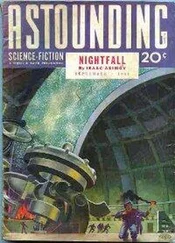This idea for his future had come into his head on the spur of the moment. In fact, he had no plans and could hardly see beyond the present. He strolled down to Hyde Park Corner and decided to return to Westminster, as he had read MPs living in north London used to do, by walking on grass. Once you could have come all the way from Bayswater through Hyde Park, Green Park, and St. James’s Park, and barely set foot on stone or tarmac. This was no longer quite possible but still he managed to walk on turf and under trees as far as the palace and, having crossed a couple of wide thoroughfares, was once again in a cool and leafy paradise. No one recognized him, no one stared. He thought about never having to set eyes on Zillah again. He thought about the very large sums of money that would accrue to him through the sale of his houses, something in the region of £3 million. Jims wasn’t in need of the money, he had plenty, but it was nice to know it was there and more of it coming in.
After a while he set foot on the bridge that spans the lake and, pausing in the middle, looked from Buckingham Palace on his right to Whitehall, Horse Guards, and the Foreign Office on his left. It hadn’t changed much in a hundred and fifty years, apart from the addition of the London Eye, the great wheel that rolled across the sky behind Downing Street, silver and shining, all spokes and capsules like big glass beads. The sunlight glittered on the water, the weeping trees made deep shadows, swans glided under the bridge, and the pelicans gathered on their island. But the idea of leaving had begun to take hold. He would go abroad. It might be years before he returned. How long before he saw that view again?
On the move once more, he recalled a story he’d heard about a chamberlain at some Oriental court who, inadvertently breaking wind in the presence of the potentate, was so stricken with shame that he fled immediately and wandered the earth for seven years. Jims, however, felt not in the least ashamed, he simply wanted to avoid the argument, recriminations, inquests, speculation, and need to defend himself. “Must,” said the first Queen Elizabeth, “is not a word to use to princes.” Well, “why” and “explain” and “justify” were not words to be used to him. He’d go tonight. The car, of course, must be left for his agent to garage somewhere or sell. He didn’t want to be encumbered by it. The same applied to his clothes. It occurred to him that if he ever wore a suit again it would be purely for the pleasure of admiring the look of himself in the mirror. But really he preferred his appearance to be admired by someone else.
Morocco, he thought, he’d always wanted to go there and for some reason never had. New Orleans, Santiago, Oslo, Apia-all places he hadn’t yet been to. Politics had enslaved him, kept him to the grindstone, stolen all his time. It was over now. As he entered Great College Street from the northern end, Big Ben was striking five. He had never before noticed how sonorous and deep-throated were its chimes and how forbidding. The porter who had done their shopping was standing behind the desk.
“Is Mrs. Melcombe-Smith back yet?” He thought this a cunning way of phrasing it.
The porter said she’d just gone out again. To take “Master Jordan” to an appointment in Harley Street, he thought. Relieved, Jims thanked him. Was there anywhere else in the world where a child of three would still be referred to in these terms except this tiny spot of England, London, Westminster, the environs of Parliament? Pity, really. He liked feudal ways and would soon be leaving even their vestiges behind.
Not quite convinced, he entered the flat cautiously and, finding it as empty as he’d hoped, threw essentials into an overnight bag along with his passport. The estate agent had promised a valuation of the place by the following afternoon. His garage, which had his car keys, would pick up the car at much the same time. They could get on with it, he wouldn’t be here. Quietly, he went down by the stairs and out into the street by the car park. There he hailed a taxi and asked the delighted driver to take him to Heathrow. The first flight going somewhere he’d never been he would take.
As he sat back in the cab, all his worries, his real anguish at hopes blighted and ambition wrecked, vanished like smoke in the wind. At first he couldn’t define the source of his sudden surge of happiness and then, all at once, he could. It was called freedom.
Minty had just got out of the bath at six-fifteen when the police came back. The police are nearly as likely to be favorably impressed by cleanliness, neatness, and respectability as anyone else. In almost everyone’s mind, crime is associated with dirt and squalor, with late rising and late retiring, a routineless existence, head lice, drugs of all sorts, blocked drains, and unidentifiable smells-and with bizarre dressing, too, punk hairstyles, body piercing, an excess of leather, boots, and fingernails painted anything but red or pink.
Minty smelled of soap and lavender shampoo. Her fine soft hair, the color of dandelion down and freshly washed, looked windblown. The bath hadn’t cleaned makeup off her face because she had never worn it. She was dressed in pale blue cotton trousers and a pale blue-and-white-striped T-shirt. The house was no less clean than its owner and French windows were open on to a neat if sterile garden.
The police, who were the same pair that had called next door, remained uninfluenced by the ramblings of a paranoid old man. They found Minty transparent and saw that answering the questions put to her gave her no problems. She seemed conspicuously innocent and was, for the only old women in the neighborhood she’d been interested in were Auntie and Mrs. Lewis. One of them had apparently disappeared and the other she had herself got rid of. The name Eileen Dring meant nothing to her, but when they asked if she remembered seeing her on the seat by the flower bed just before one on Sunday morning, she nodded and said yes, because Laf had told her yesterday he and Sonovia were going to say yes, they’d seen her, and she, Minty, had been with them. As it happened, she couldn’t remember at all well just what she had seen at that point, she’d been so angry and at the same time so determined, now that at last she had Mrs. Lewis in her grasp. But if Laf said this Eileen Something had been there, no doubt she had been.
“And then you said goodnight to your friends, went home and maybe straight to bed?”
“That’s right. I locked up and went to bed.” She wasn’t telling them how she’d gone straight out again and found Mrs. Lewis and dealt with her once and for all.
“Did you look out of your bedroom window at all?”
“I expect I did. I usually do.”
“And did you see anyone in the street?”
“Not in the street, I didn’t. Her from Iran opposite, the one who wears the black thing covering her up, all her lights were still on. That lot never goes to bed.”
“Thank you, Ms. Knox. I think that’s all. Unless you can think of anything we ought to know.”
She couldn’t, but still she added a word or two about how wicked murder was and people who committed it ought to be put to death. She was all for bringing back hanging, she said. And that was all. There was no point in telling them about Mrs. Lewis, they wouldn’t believe her, they’d be like Laf and Sonovia. Apparently they were satisfied because they soon went away.
After she’d come back that night, the first thing she’d done had been to wash the knife and her own hands at the same time. Of course she’d had a bath afterward, but she’d have done that whatever time she’d got in. The knife still worried her. It was back in the knife drawer but she couldn’t get it out of her mind, she’d been thinking about it on and off all day while she was ironing those shirts. She pictured it contaminating all the other knives in the drawer. That she’d scrubbed it in detergent and disinfectant-the whole place smelled of TCP, she’d used so much-made no difference. She’d have to get it out of the house. The bins in Harrow Road were full again, she’d noticed on her way home, and the idea of carrying it up Western Avenue or all the way down Ladbroke Grove made her feel nauseous. She remembered how it had been last time, having to wear that dirty knife next to her skin. In fact, the way she thought of it now, not only didn’t she want it near her, she didn’t want it anywhere near her own property, let alone in her clean knife drawer. She wanted it miles away. But could she bear to carry it for miles?
Читать дальше











